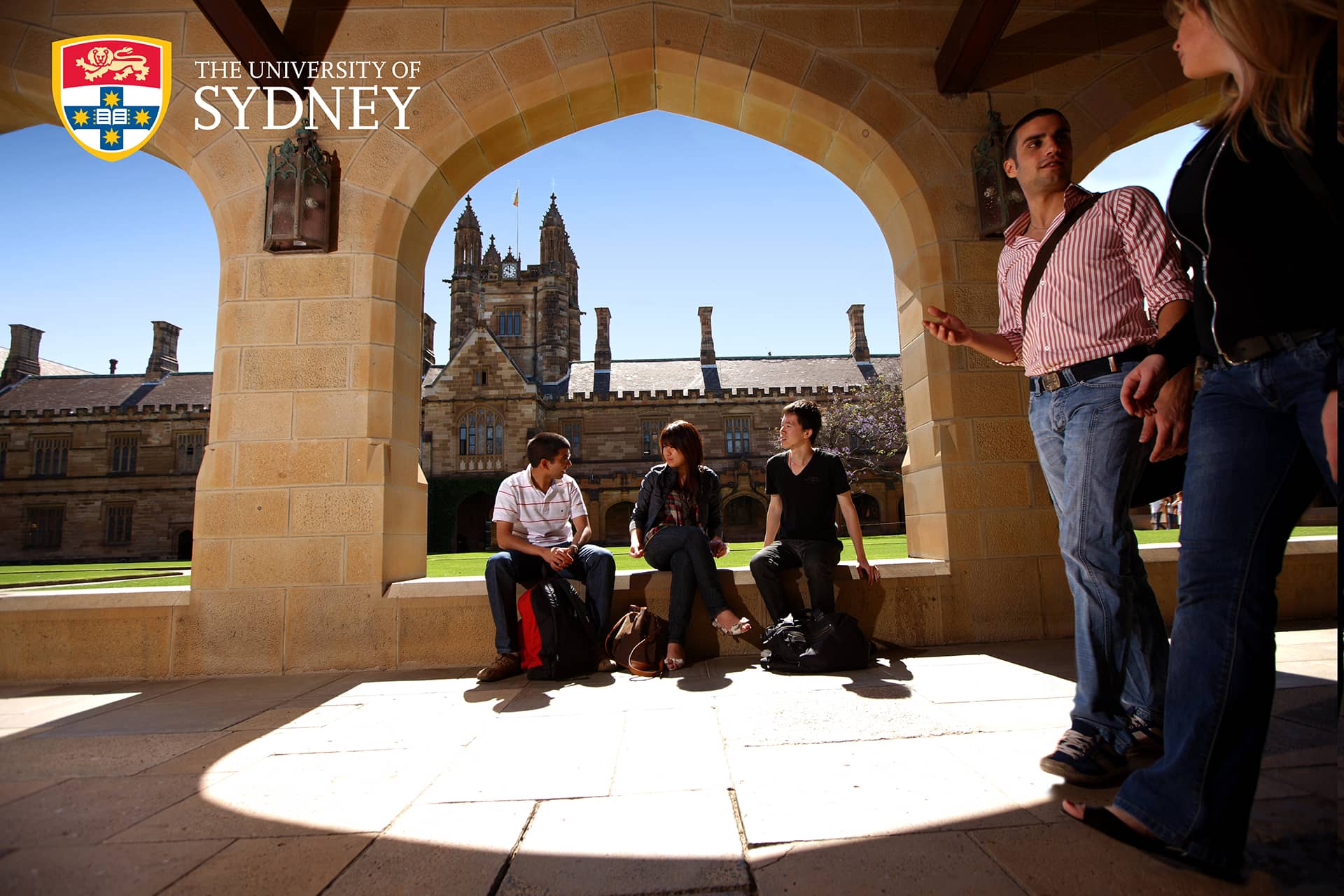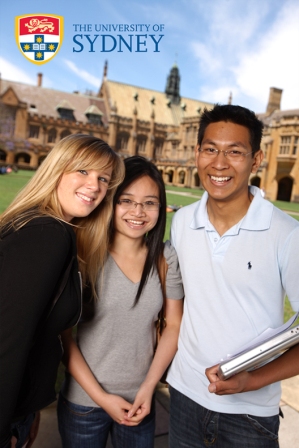
6 interesting things about studying occupational therapy
The University of Sydney followed second-year Bachelor of Applied science (Occupational Therapy) student Clement Lim around on a typical day on campus to ask him 15 questions about studying occupational therapy—why he chose it, what he likes about it, and what surprised him most about university life.
Here are six things interesting things about studying occupational therapy at the University of Sydney from Clement.
1. Why he chose an occupational therapy degree
Studying occupational therapy can make a genuine difference to people’s lives. When why he chose an occupational therapy degree, he said his main reason was “to empower others in the best way I can.”
Sydney occupational therapy students learn to help people with disabilities and those recovering from injury or with ongoing conditions to overcome barriers that may be preventing them from participating more fully in life. Students also learn alternative techniques that help people to achieve a given task and facilitate skill improvement.
2. What he learns in the practical classes
Occupational therapy students participate in practical classes in the OT Annex at Cumberland campus.
“The OT Annex contains some of the mobility equipment and assistive devices that we will prescribe to our clients should they require it,” explained Clement. “These include wheelchairs, crutches, hoists, slide sheets, transfer boards, walkers, over-toilet aids, and modified utensils (just to name a few), which essentially allow clients to be able to live independently and safely in a dignified manner.
“In our lessons, we learn about the functions of the equipment, how to operate them, what are the safety considerations, and what are the conditions that may require the use of this equipment.”
3. What surprised him about being at university
Studying occupational therapy offers students a supportive environment in which to learn. They are taught by leading academics, clinicians and researchers who play an important role the healthcare community. The student experience at university is a time to learn, change, grow and for recent high school graduates, and it’s often an opportunity to become more independent. Clement said that he was most surprised by the autonomy that he now has as a university student.
4. How quickly he was able to undertake a placement
Clement has already been able to gain real-world experience during a clinical placement at Liverpool Hospital’s cardiology ward.
“As it was my first placement, I was involved in doing the initial assessments of the clients, where we find out information that is pertinent to the care of the client, so that we can be better informed and gain a holistic understanding of our client to provide the best form of care that is tailored to their needs.
“My placement also provided me with further insights onto the different cardiovascular diseases and their impacts, which are often devastating, and can be insidious at times. Notably, I also learn about the wider healthcare system in Sydney, and what are the different policies implemented that support both clients and healthcare professionals,” said Clement.
5. What is his favourite subject
Clement’s favourite subject is neuroscience—the study of the nervous system of the human body, which includes learning about the structures involved (anatomy) and their role in our daily life (physiology).
“Essentially, we learn in greater depth about the brain and the spinal cord, and how these structures contain many other smaller structures and pathways that are crucial for life and functioning, which when damaged, can lead to disastrous effects.
“We also learn about the different structures and organs in our face and how they work; namely the eye, the ear, and the vestibular system. It is interesting to see first-hand how our daily subconscious actions involved so many intricate and delicate operations within our nervous system, especially since they are often done without much conscious thought and may even be unbeknownst to us!” said Clement.
6. How much he loves studying with different people
As highly trained and valued professionals, occupational therapists work with a diverse range of people, including other healthcare professionals and clients from all walks of life. Clement has loved that he has been able to study and work alongside people from a diverse range of backgrounds from around Australia and the world.
“My classmates are awesome! Everyone helps and supports one another in our learning; which makes the learning environment a conducive and optimal one.
“It is always interesting and exciting to talk to them and hear their ideas during class participations, which contains many thought-provoking and novel perspectives. Consequently, the class becomes spirited and learning becomes lively!” said Clement.

About Occupational Therapy Degrees at the University of Sydney
Students at the Faculty of Health Sciences learn how to thrive in complex health environments and build an understanding of how to work with other health professionals to provide the highest quality patient-centered care.
The Sydney Master of Occupational Therapy is very popular among Canadian students. During this two-year degree, you will cover a wide range of topics including theories of what people do in daily life and why; knowledge of the development of human capabilities (e.g., cognitive, motor, psychosocial) and the ways in which injury and illness typically disrupt them; activity and environmental analysis; and theories and techniques for promoting participation in daily life. As part of your studies, you will complete more 1,000 hours of clinical placements, providing the opportunity to apply your knowledge and gain hands-on experience with real clients.
Program: Master of Occupational Therapy
Location: Lidcombe, (suburb of Sydney), New South Wales
Semester intake: March each year
Duration: 2 years
The Bachelor of Applied Science (Occupational Therapy) program covers a wide range of topics including theories of what people do in daily life and why; knowledge of the development of human capabilities (e.g., cognitive, motor, psychosocial) and the ways in which injury and illness typically disrupt them; activity and environmental analysis; and theories and techniques for promoting participation in daily life. Professional practice is an integral part of the program, and fieldwork education consists of block placements and other guided learning experiences.
Program: Bachelor of Applied Science (Occupational Therapy) Honours
Location: Lidcombe, (suburb of Sydney), New South Wales
Semester intake: March each year
Duration: 4 years


































Ask A Question
Ask us about your program of interest, or if you have a question about our services.
CONTACT US TODAY